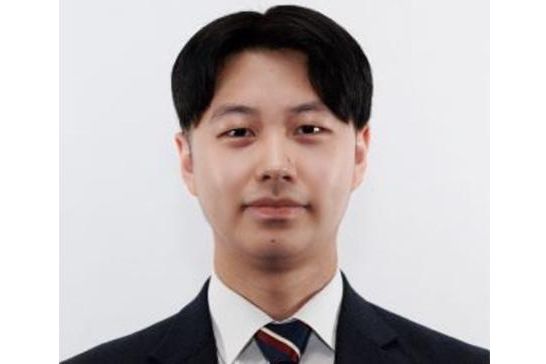East Asia on Edge: Japan-China Taiwan Tensions Escalate, Forcing South Korea to Navigate a Complex Geopolitical Landscape
 South Korea
Geopolitics
South Korea
Geopolitics

Japan-China tensions escalate over Taiwan, driven by Japan's defense stance and China's retaliatory measures. This crisis poses significant diplomatic challenge
East Asia's Renewed Tensions: A Deep Dive into the Japan-China Standoff and its Korean Implications
Just a month after the Asia-Pacific Economic Cooperation (APEC) summit in Gyeongju, North Gyeongsang Province, offered glimmers of hope for enhanced regional cooperation, the familiar specter of geopolitical friction has resurfaced with alarming intensity. The catalyst for this latest downturn? Japanese Prime Minister Sanae Takaichi’s assertive declarations regarding Japan’s potential exercise of collective self-defense in the event of a Taiwan contingency. These remarks have ignited a severe diplomatic crisis with Beijing, showing no signs of de-escalation.
What began as a typical exchange of diplomatic barbs between foreign ministries has rapidly spiraled into serious repercussions. China has issued travel warnings, reinstated bans on Japanese seafood imports, and fueled a wave of viral social media confrontations, significantly deteriorating public sentiment on both sides. This isn't merely another transient dispute destined to dissipate after a few ministerial meetings; it signals a profound, perhaps inevitable, collision between the core strategic imperatives of both nations.
The Unyielding Stance of Two Leaders
For Chinese President Xi Jinping, the reunification of Taiwan transcends mere territorial ambition; it is intrinsically linked to his overarching vision for national rejuvenation and forms a crucial pillar of his political legitimacy. Concurrently, Prime Minister Takaichi, who ascended to power on pledges of a more robust Japan capable of safeguarding its regional interests, views collective self-defense as fundamental to her national security doctrine and her commitment to supporting democratic allies in an increasingly volatile regional order.
Neither leader currently faces significant domestic pressure to yield. Takaichi enjoys high approval ratings, consistently above 70 percent, bolstered by successful diplomatic engagements with leaders like President Donald Trump and her prominent presence at international forums such as APEC and the G20. Furthermore, deeply entrenched anti-China sentiment in Japan, with 86 percent disapproval according to Pew Research, provides ample political capital for her firm stance, making any concession politically perilous.
On the other side, President Xi cannot afford to appear wavering on the Taiwan issue. Such an impression would directly undermine the Chinese Communist Party’s historical narrative and invite internal criticism about his resolve to achieve China’s most sacrosanct territorial objective. A failure to respond forcefully could also weaken Beijing’s long-standing doctrine against foreign interference in cross-strait relations.
Beyond Precedent: The Taiwan Question's Existential Stakes
History offers cautionary tales of protracted standoffs. The 2012 Japan-China dispute over the Senkaku Islands and various historical grievances between Korea and Japan took years to de-escalate. However, these past conflicts lacked the profound ideological intensity and existential stakes that define the Taiwan question, suggesting the current crisis could prove even more enduring.
Critical Implications for South Korea
This escalating incident presents two crucial implications for South Korea that demand careful consideration.
1. Navigating Strategic Clarity in a Binary Environment
The first pertains to how China will calibrate its response to a neighbor’s explicit declaration of potential military involvement in a Taiwan contingency. While previous Japanese leaders, including the late Prime Minister Shinzo Abe, hinted at participation through carefully coded language, Takaichi’s unambiguous public commitments mark a new threshold for a sitting head of government. Beijing’s reaction to this shift from strategic ambiguity to strategic clarity will be meticulously observed.
Japan’s position is, however, just one piece of a broader regional security recalibration. Washington has increasingly pressed Seoul for its stance on Taiwan and has sought to reorient the mission of United States Forces Korea (USFK) towards strategic competition with China. This pressure has manifested through remarks from figures like Undersecretary Elbridge Colby, USFK Commander Gen. Xavier Brunson’s inverted map presentation, and Adm. Daryl Caudle’s comments on Seoul’s acquisition of nuclear-powered submarines advancing anti-China efforts.
As discussions surrounding strategic flexibility and the U.S.-Korea alliance modernization continue, Beijing’s treatment of Tokyo’s declaration will set a significant precedent for Seoul. How China differentiates between declaratory policy and operational capability, or between contingency planning and actual commitment, will critically inform Korea’s navigation of an increasingly binary strategic environment—one that challenges Seoul’s traditional preference for nuanced positioning.
2. The Hiatus of Trilateral Cooperation
The second implication involves the suspension of the Korea-China-Japan trilateral framework. After lying dormant for five years, these mechanisms had resumed last year, fostering optimism for institutionalized cooperation on transnational issues. Yet, Beijing’s official withdrawal from this month's scheduled culture ministerial meeting indicates that this vital architecture will once again lapse into inactivity, absent a dramatic improvement in China-Japan relations.
This resulting vacuum eliminates crucial channels for working-level coordination, crisis communication, and the dense network of business, cultural, and educational exchanges. Though often deemed peripheral, these interactions form the vital connective tissue of regional stability.
The collapse of trilateralism redirects Korea’s diplomatic efforts towards exclusively bilateral channels. President Lee Jae Myung has demonstrated considerable acumen in this domain, conducting substantive meetings with both Japanese and Chinese leaders during the APEC summit, prioritizing shared interests over disagreements. Indeed, the bilateral format might offer advantages that multilateral frameworks sometimes obscure, enabling Korea to tailor its engagement with each capital according to the distinct rhythms and priorities of their respective relationships.
The Path Forward: Sophisticated Parallel Diplomacy
What emerges from this complex scenario is the absolute necessity for sophisticated parallel diplomacy. South Korea must simultaneously deepen its security cooperation with Tokyo while diligently preserving economic interdependence and diplomatic dialogue with Beijing. The feasibility of this delicate approach hinges on whether the regional environment will permit such balanced engagement, or if the intensifying great power competition will ultimately reshape the parameters within which Korea can effectively operate in East Asia.